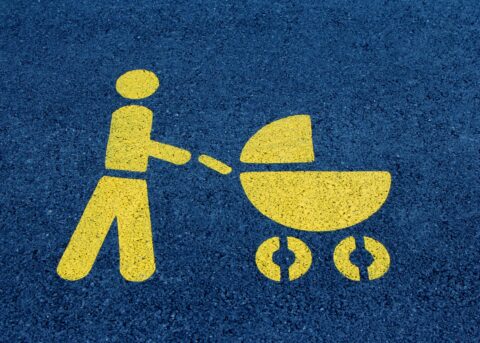Amendments to Wakf Properties Lease Rules, 2014
By Priyanka Shingare and Varsha G. Subramanian
Introduction
The Wakf Properties Lease Rules, 2014 (“Rules) have been recently amended vide notification dated 26 August 2015 (“Amendment Rules”).
The Concept of Waqf
The concept of Waqf has evolved from the principles of ‘endowment’ in Islam. Waqf refers to bequest of property (moveable or immovable, tangible or intangible) by a Muslim to Allah. The proceeds from the bequeathed property are used to meet the needs of the deprived and maintain the bequeathed property.
Waqf properties include landed (often agricultural) properties, built up commercial and residential properties, Mosques, Dargahs, Khanqahs, Maqbaras, Ashoorkhanas, Qabristans (graveyards), Takiyas, Idgahs, Imambaras, Anjumans etc.
The owner of the properties is the Waqif (settler) who executes a Waqf-namah, to surrender the properties to Allah. He either appoints himself or a Mutawalli (Manager) to oversee the Waqf (charitable trust). Waqf is a perpetual bequest.
Administration of Auqaf (plural for Waqf)
In order to govern the proper administration of Auqaf and prevent mismanagement of the Auqaf properties by the Mutawallis, the Waqf Act, 1954 was enacted. The Waqf Act, 1954 made provisions for establishment of Waqf Boards based on the fundamental right provided in Article 26 of the Constitution. The subject relating to Waqf is enlisted in the Concurrent List of the Seventh Schedule of the Constitution. Hence, both the Central Government and the State Government have the power to make rules in respect of the same. The Waqf Act, 1954 established the Waqf Boards at the state level and also established the Central Waqf Council to supervise the functioning of the State Waqf Boards.
The Waqf Act, 1954 also provided for survey of Waqf properties, publication of list of Auqaf, registration of Auqaf, and superintendence of Auqaf. The Waqf Act, 1954 went through a series of amendments in 1959, 1964 and 1969 respectively. Thereafter, it was replaced by the Waqf Act, 1995. The Act provided more powers to the Waqf Boards to supervise the functioning of Auqaf.
Salient Features of the Waqf Act, 1995 (“Act”)
The Act was subsequently amended by the Waqf (Amendment) Act, 2013. However, the said amendment has been repealed by the Repealing and Amending (Second) Act, 2015. Some of the salient features of the Act are as follows:
Definition of Waqf –
“Wakf” is defined under the Act, as a permanent dedication by a person professing Islam, of any movable or immovable property for any purpose recognized by the Muslim law as pious, religious or charitable.
Permitted transfer of Waqf properties –
- Transfer of immovable properties in the form of sale, gift, exchange or mortgage is permitted with prior sanction of the Waqf Board.
- Lease or sublease of immovable property for a period of 1 year extending upto three years is permitted with previous sanction of the Waqf Board.
- Transfer of Mosques, Dargahs and Khangas by way of sale, gift exchange or mortgage is permitted only if provided under other laws governing such transfer.
Prohibited transfer of Waqf properties –
- Lease or sub-lease of any immovable property for any period exceeding three years would be void and have no effect.
- Lease of property without prior permission by the Waqf Board, which is otherwise permitted with the authorization of the Waqf Board.
Recent Changes brought by the Amendment Rules
The Amendment Rules have reduced the reserve price per square feet for lease of an immovable Wakf property and also extending the period of lease in the following manner :
- Reserve price for lease of Waqf properties –
The Rule 7 of the Amendment Rules, which stipulates the reserve price for lease of Waqf properties has been amended. Earlier, the reserve price per square feet for lease of the Wakf property was not less than 5% per annum of the market value of the property. Post Amendment, the reserve price has been categorized as follows:
- The percentage of reserve for hospitals, educational institutions, social sectors has been reduced to not less than 2% and
- The percentage of reserve for commercial activities has been reduced to not less than 2.5% per annum of the market value of the property.
2. Long Term Lease of Waqf Properties –
Rule 17 (1) of the Rules has also been revised, which deals with long term lease of Waqf properties extending upto a period of 30 years. Earlier, the said rule stated that a lease of any immovable Waqf property exceeding the period of one year and extending up to thirty years may be granted for the purpose of carrying out any commercial activity, education or health purposes, with the approval of the State Government. If the State Government fails to grant permission within three months, the permission may be deemed to be granted. The Amendment has brought about the following chages:
- the minimum period of lease has been increased from 1 year to 3 years.
- the time period within which the State Government has to grants its permission has been reduced from 3 months to 45 days.
By entering the email address you agree to our Privacy Policy.



